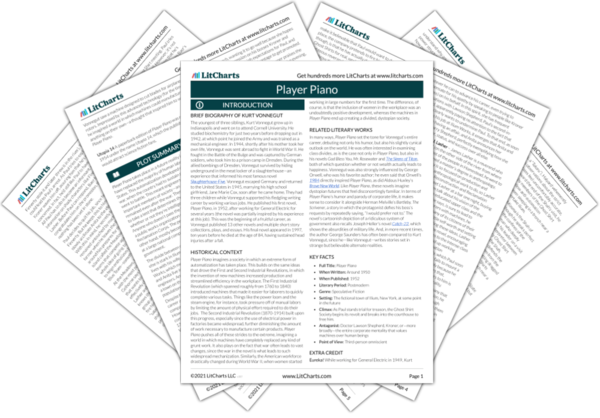The timing of the Shah’s comment is darkly funny, since it’s clear that Edgar and Wanda are pretty miserable in this moment. It’s not as if they’re squeezing the most enjoyment possible out of their lives. Their streamlined household and efficient machines have done nothing to make them happier, and they’re not leading a more fulfilling life due to a lack of chores. Rather, their problems are just as heavy and upsetting as they would be if the family didn’t own fancy machines. This indicates that, as much as this society believes in the power of machines to improve people’s lives, true happiness has nothing to do with technological progress.


